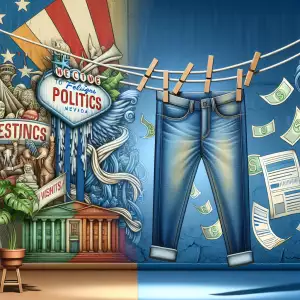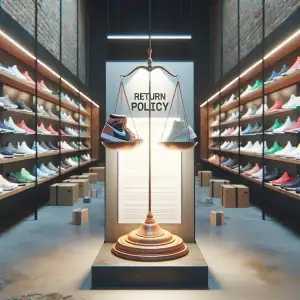Fashion's Dirty Laundry: Uncovering Apparel Politics
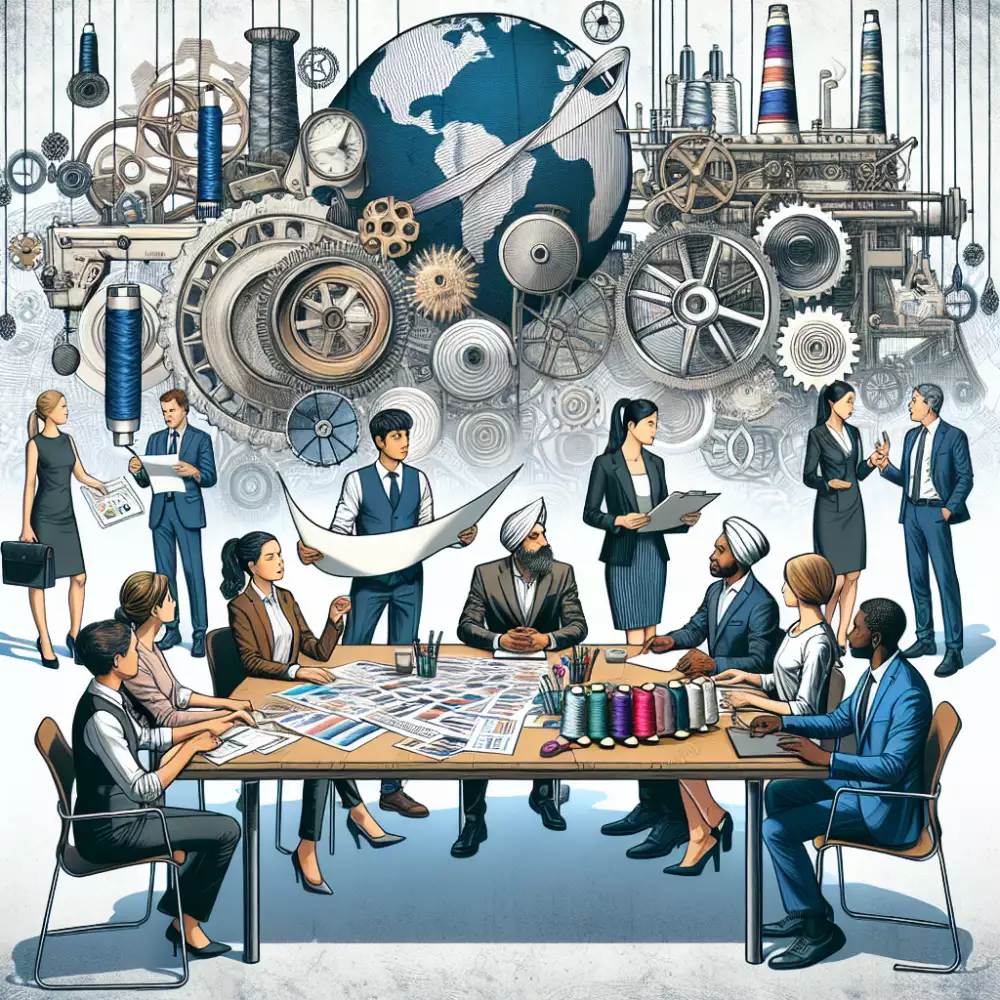
- Fast Fashion's Human Cost
- Environmental Impact of Clothing
- Workers' Rights and Exploitation
- Sustainable Fashion Movement
- Ethical Consumption Choices
- Role of Legislation and Policy
- Consumer Activism and Boycotts
- Brand Transparency and Accountability
- Impact of Social Media Campaigns
- Future of Ethical Fashion Industry
Fast Fashion's Human Cost
Fast fashion thrives on obscuring the human cost behind its trendy, low-priced garments. The industry's relentless pursuit of profit has created a system where garment workers, predominantly women in developing countries, face exploitative working conditions and violations of their basic human rights. These individuals, often trapped in cycles of poverty, are subjected to low wages, unsafe working environments, forced overtime, and even physical and verbal abuse.
The power dynamics within the apparel industry contribute significantly to this exploitation. Large multinational corporations wield significant influence over their suppliers, often prioritizing speed and low costs over ethical considerations. This pressure trickles down the supply chain, leaving factories and workers with little bargaining power to demand fair treatment.
The lack of transparency in supply chains further exacerbates the issue. Consumers, often unaware of the true cost of their purchases, are kept at arm's length from the realities of garment production. This disconnect allows fast fashion brands to distance themselves from accountability, making it difficult to hold them responsible for the well-being of the workers who make their clothes.
Addressing the human cost of fast fashion requires a multifaceted approach. Consumers can play a role by demanding transparency from brands and making conscious purchasing decisions. Governments and international organizations must enforce stricter labor laws and regulations within the industry. Ultimately, a shift in the industry's priorities, from profit maximization to ethical and sustainable practices, is essential to ensure that the rights and well-being of garment workers are protected.
Environmental Impact of Clothing
The environmental impact of clothing is a hot topic these days, and for good reason. The fashion industry is a major polluter, from the massive amounts of water used to grow cotton to the toxic chemicals used in textile production. But the impact of our clothes goes beyond the environment. It's deeply intertwined with politics and power dynamics worldwide.
Let's talk fast fashion. Those trendy, cheap clothes that flood our malls and online stores come at a cost. They're often produced in countries with lax labor and environmental regulations, leading to sweatshop conditions and pollution that disproportionately affects marginalized communities. These communities often lack the political power to demand better conditions or hold corporations accountable.
Then there's the issue of waste. We're consuming and discarding clothing at an alarming rate, with much of it ending up in landfills or being shipped to developing countries where it can overwhelm local waste management systems. This global waste trade raises questions about environmental justice and the responsibility of developed nations.
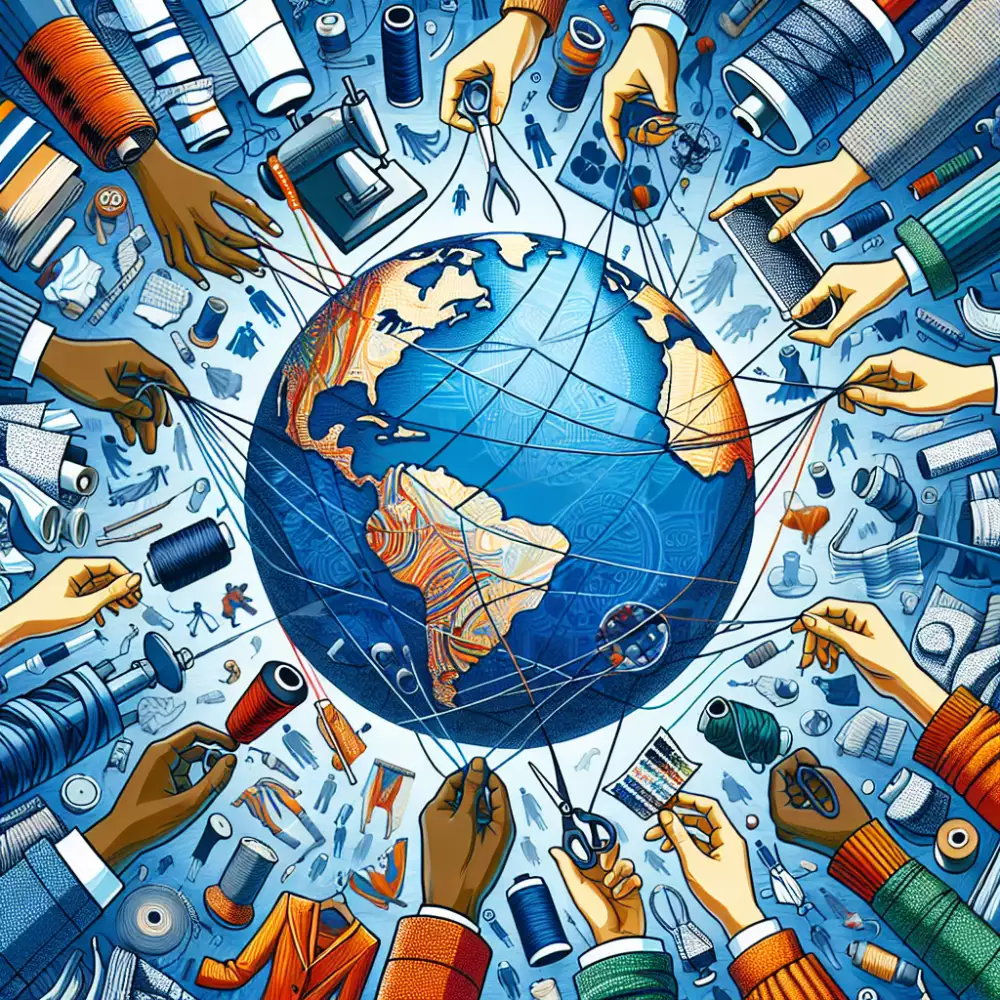
The good news is that awareness of these issues is growing. Consumers are demanding more sustainable and ethical practices from fashion brands. Governments are enacting stricter environmental regulations and exploring policies like extended producer responsibility, which holds companies accountable for the entire lifecycle of their products.
But there's still a long way to go. Addressing the environmental and social impacts of the fashion industry requires systemic change. We need greater transparency in supply chains, stricter enforcement of labor and environmental laws, and a shift towards more sustainable consumption patterns. This requires collaboration between governments, businesses, and consumers to create a fairer and more sustainable fashion future.
Workers' Rights and Exploitation
The apparel industry, a major player in the global economy, often faces scrutiny for its labor practices. Workers, particularly in developing countries, can be subjected to exploitative conditions. These include low wages, excessive overtime, unsafe working environments, and suppression of labor rights. The pursuit of fast fashion and low production costs often comes at the expense of the workers who make our clothes.
Politics plays a significant role in this complex issue. Governments in producing countries face pressure to attract investment and create jobs, sometimes leading to lax enforcement of labor laws. On the other hand, consumer countries grapple with the ethical implications of their consumption habits.
Various stakeholders are involved in addressing these challenges. Labor unions advocate for workers' rights, pushing for better wages and working conditions. Non-governmental organizations (NGOs) play a crucial role in monitoring labor practices, raising awareness, and advocating for change. Consumers, increasingly aware of the ethical implications of their choices, are demanding greater transparency and accountability from brands.
The industry has witnessed the rise of ethical fashion, with brands promoting fair labor practices and sustainable production. However, significant challenges remain in ensuring that workers' rights are protected throughout the global supply chain. Addressing these issues requires collaboration between governments, businesses, workers, and consumers to create a more just and equitable apparel industry.
Sustainable Fashion Movement
The sustainable fashion movement is about far more than just eco-friendly fabrics and ethical production. It shines a light on the complex political landscape of the global apparel industry. For decades, fast fashion thrived on low wages, lax environmental regulations, and opaque supply chains, often in developing countries. This system, fueled by relentless consumption in wealthier nations, has led to exploitation, environmental degradation, and a disregard for workers' rights.
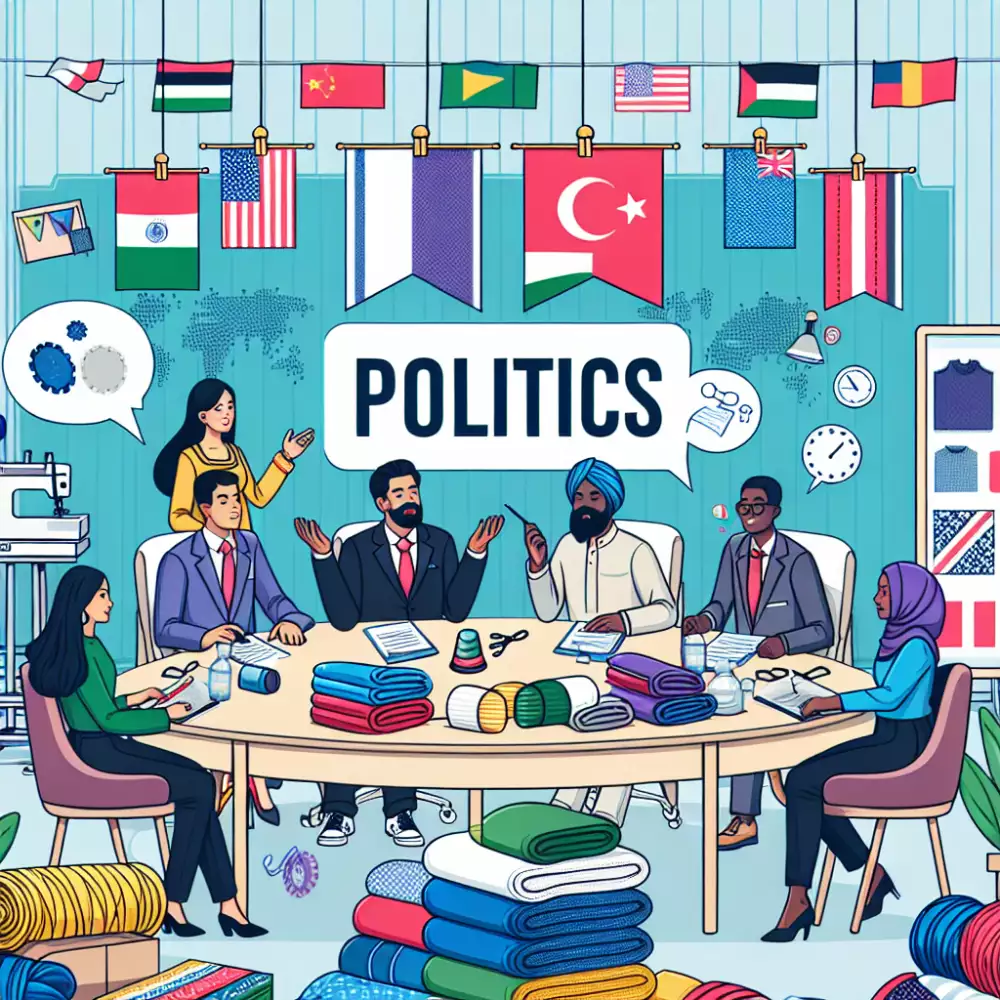
The call for sustainable fashion is a call for transparency and accountability. Consumers are demanding to know where their clothes come from, who made them, and what environmental impact their production has. This has put pressure on brands to address issues like unfair labor practices, unsafe working conditions, and the overuse of resources. Governments are also being urged to implement stricter regulations and trade policies that promote ethical and sustainable practices within the industry.
The movement is also intertwined with social justice issues. It recognizes that the burden of fast fashion's negative impacts often falls disproportionately on marginalized communities and developing countries. There's a growing demand for fair wages, safe working conditions, and the empowerment of garment workers, particularly women who make up a large portion of the workforce.
Ultimately, the sustainable fashion movement is about using fashion as a force for positive change. It's about shifting away from a culture of disposable consumption towards one that values quality, durability, and ethical production. It's about recognizing the interconnectedness of our choices and advocating for a fashion system that is just and equitable for all involved.
Ethical Consumption Choices
Ethical consumption choices are more critical than ever in the fashion industry. The clothes we buy reflect our values and have real-world consequences. Fast fashion's relentless pursuit of low prices often comes at the expense of garment workers' rights and the environment.
Here are some things to consider:
- Fair Labor Practices: Look for brands that prioritize fair wages, safe working conditions, and empower workers. Supporting ethical brands can help combat exploitation and promote social justice within the industry.
- Sustainable Materials: Opt for clothing made from eco-friendly materials like organic cotton, recycled fibers, or innovative fabrics with a lower environmental footprint. By choosing sustainable options, you can help reduce the industry's impact on our planet.
- Transparency and Traceability: Seek out brands that provide transparency in their supply chains. Look for certifications or initiatives that ensure ethical sourcing and production processes.
- Conscious Consumption: Reduce your overall consumption by buying less, repairing and repurposing clothes, and supporting sustainable brands. Embrace a more mindful approach to fashion that values quality over quantity.
- Support Ethical Brands: Many brands are committed to ethical and sustainable practices. Research and support these brands to encourage positive change within the industry.
By making informed choices as consumers, we can collectively push for greater accountability and drive positive change in the apparel industry. Our choices have the power to shape a more just and sustainable future for fashion.
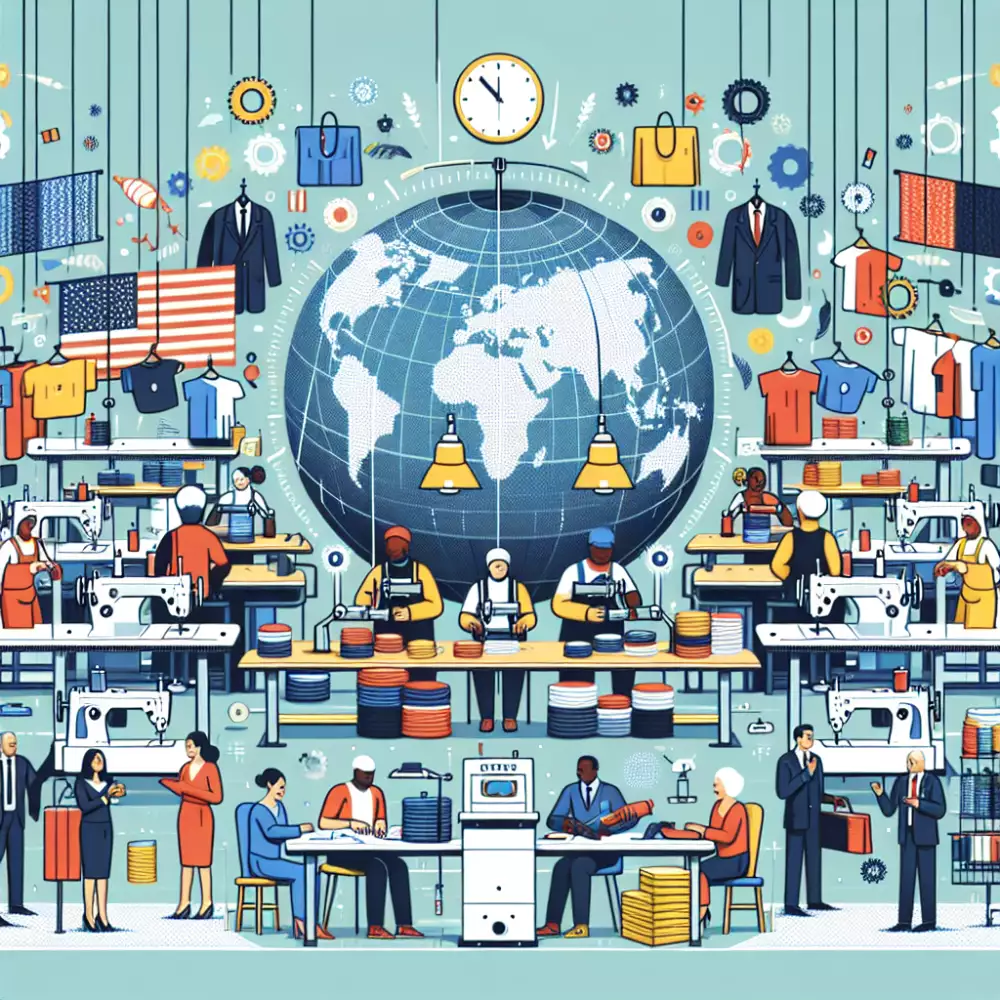
Role of Legislation and Policy
Legislation and policy play a crucial role in shaping the apparel industry's political landscape. Governments worldwide have enacted laws and regulations addressing labor standards, trade practices, environmental protection, and consumer safety. These measures aim to ensure fair wages and working conditions, prevent exploitation, promote ethical sourcing, and reduce the industry's environmental impact.
Trade agreements, such as free trade agreements and preferential trade programs, significantly impact the apparel industry. These agreements can influence sourcing decisions, production costs, and market access for apparel companies. Governments often use trade policies to protect domestic industries, promote exports, or address labor and environmental concerns in apparel-producing countries.
The apparel industry actively engages in lobbying and advocacy efforts to influence legislation and policy. Apparel companies, industry associations, and labor unions lobby governments to support or oppose specific laws, regulations, and trade agreements. They aim to shape policies that favor their business interests, protect workers' rights, or promote sustainability.
Consumer awareness and activism have also increased the pressure on governments and apparel companies to address social and environmental issues within the industry. Consumers are becoming more conscious of the ethical implications of their purchasing decisions, demanding greater transparency and accountability from brands. In response, governments have faced pressure to strengthen regulations and enforcement mechanisms to ensure ethical and sustainable practices within the apparel sector.
Consumer Activism and Boycotts
Consumer activism and boycotts have become powerful tools in the fight for ethical and sustainable practices in the apparel industry. As consumers become increasingly aware of the social and environmental impacts of their clothing choices, they are demanding greater transparency and accountability from brands.
Social media platforms and online communities have amplified the voices of concerned consumers, allowing them to share information, organize campaigns, and mobilize support for boycotts. Consumers are using their purchasing power to punish brands associated with unfair labor practices, environmental pollution, or animal cruelty.
One notable example is the boycott of fast fashion brands that gained momentum in recent years. Consumers are increasingly rejecting the fast fashion industry's model of low prices, disposable clothing, and rapid consumption cycles. They are demanding more durable, ethically produced garments that are made to last.
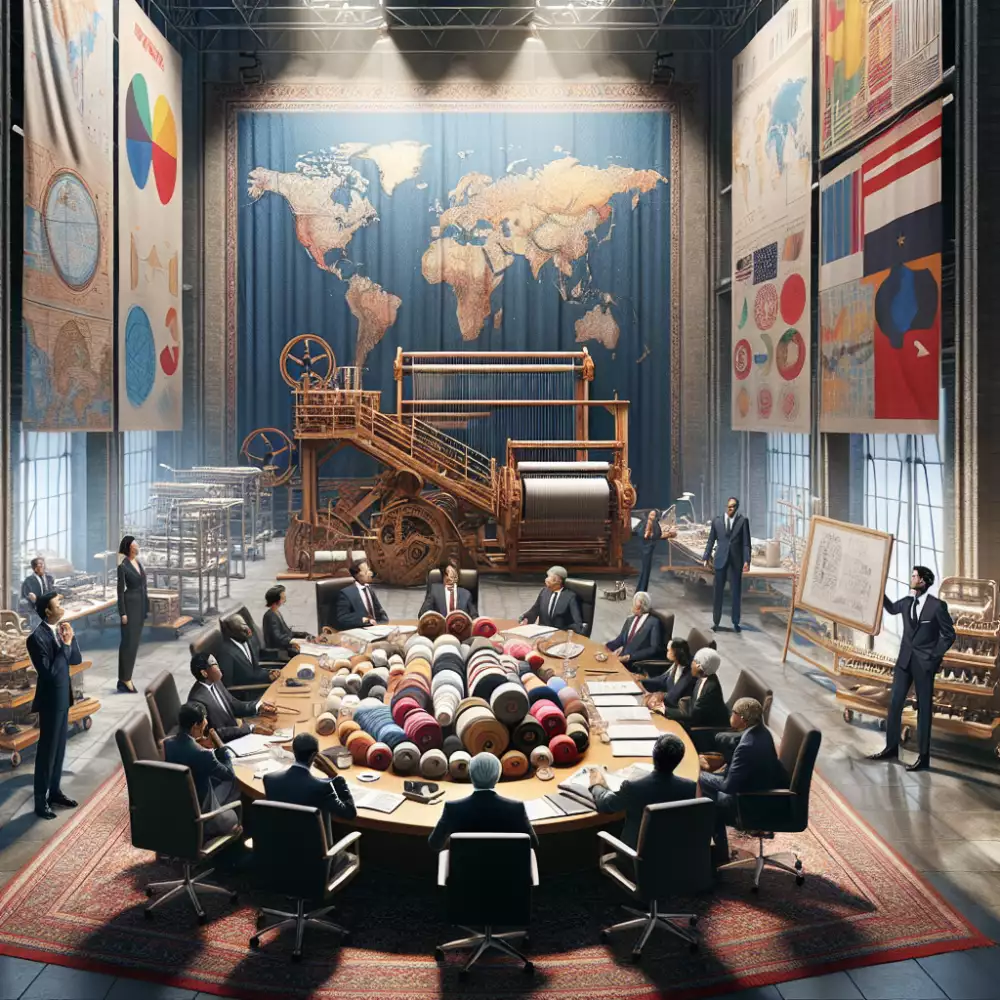
Consumer pressure has led to some positive changes in the industry. Many brands have adopted codes of conduct, improved working conditions in their supply chains, and embraced more sustainable materials and production methods. However, challenges remain, and consumer activism continues to play a crucial role in holding brands accountable and driving further progress.
Consumers are also becoming more discerning about the information they trust. They are increasingly skeptical of greenwashing tactics employed by some brands that make misleading or unsubstantiated claims about their ethical and sustainable practices. As a result, there is a growing demand for third-party certifications and independent verification of brands' claims.
Brand Transparency and Accountability
Consumers are more aware than ever of the social and environmental impact of their clothing choices. As a result, they are demanding greater transparency and accountability from apparel brands. This demand is no longer limited to niche ethical fashion circles; it's becoming mainstream.
Consumers want to know where their clothes are made, who makes them, and under what conditions. They are concerned about issues like fair wages, safe working conditions, and the environmental impact of production. This shift in consumer consciousness has significant implications for the apparel industry, forcing brands to confront the political dimensions of their supply chains.
For many years, the apparel industry has operated in a very opaque manner. Brands often outsource production to factories in developing countries, where labor and environmental regulations are weaker. This lack of transparency has made it difficult for consumers to hold brands accountable for unethical or unsustainable practices. However, the rise of social media and investigative journalism has made it easier than ever for information about supply chain abuses to come to light.
When brands are caught engaging in unethical or unsustainable practices, they face significant reputational damage. Consumers are quick to boycott brands that are perceived as being unethical, and negative media coverage can have a lasting impact on a brand's image. In this environment, transparency and accountability are no longer optional; they are essential for business success.
Brands that are transparent about their supply chains and take steps to improve their social and environmental performance are better positioned to build trust with consumers. They are also better able to mitigate risks, as they are more likely to identify and address potential problems before they become major scandals.
Impact of Social Media Campaigns
Social media campaigns have profoundly impacted apparel politics, amplifying voices often marginalized in traditional fashion discourse. Campaigns like WhoMadeMyClothes, sparked by the 2013 Rana Plaza factory collapse, galvanized millions to demand transparency and ethical sourcing practices from brands. This digital activism forced a reckoning within the industry, pushing for greater accountability and highlighting the plight of garment workers worldwide.
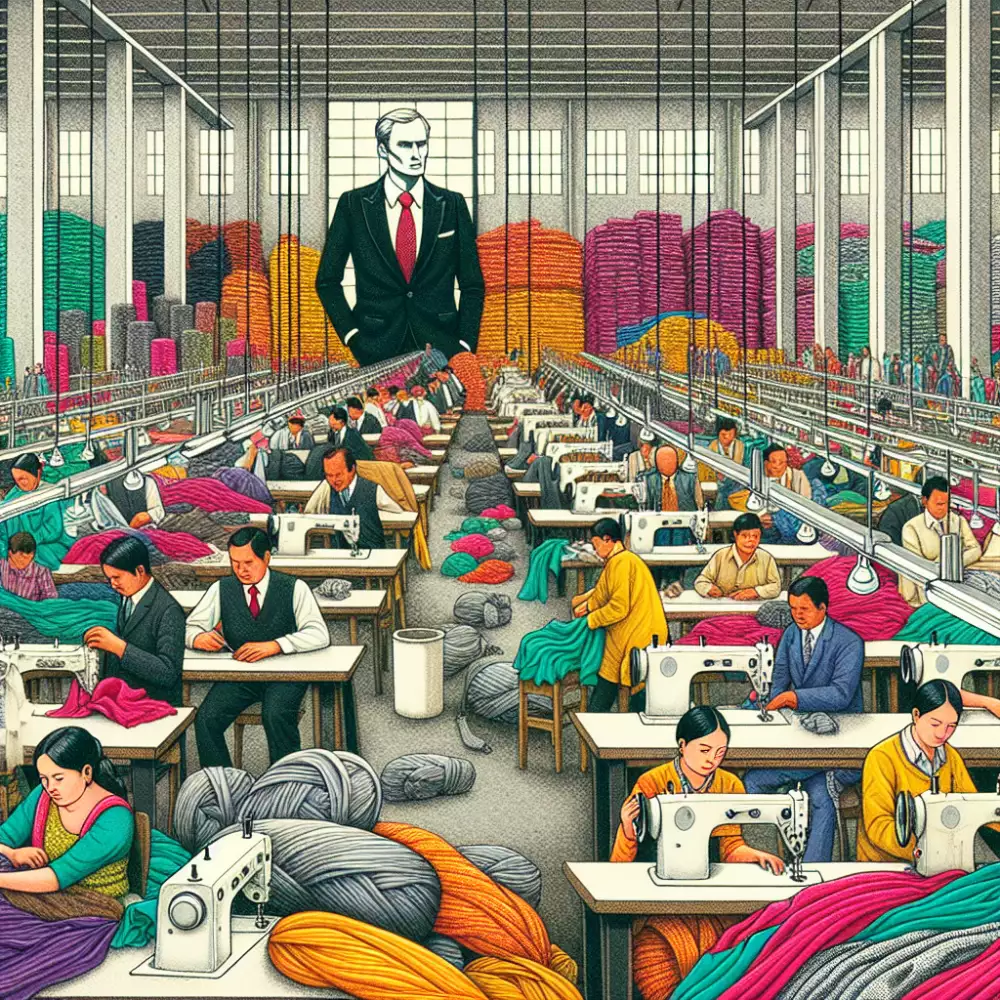
| Feature | Fast Fashion | Sustainable Fashion |
|---|---|---|
| Environmental Impact | High: Contributes to pollution, waste, and resource depletion. | Lower: Focuses on eco-friendly materials and ethical production. |
| Labor Practices | Often exploitative: Low wages, unsafe working conditions in some countries. | Aims for fair wages and safe working conditions. |
| Price Point | Generally cheaper due to mass production and lower quality materials. | Often more expensive due to ethical sourcing and production. |
| Consumer Behavior | Driven by trends, often disposable. | Emphasis on quality, durability, and timeless design. |
Moreover, social media has become a powerful tool for promoting sustainable and ethical fashion. Consumers, particularly younger generations, increasingly align themselves with brands championing fair labor practices, eco-friendly materials, and transparent supply chains. This shift in consumer values, fueled by social media campaigns and influencer advocacy, compels brands to adapt or risk losing market share.
However, the impact of social media on apparel politics isn't without its complexities. While it can drive positive change, concerns remain about performative activism and "greenwashing," where brands leverage social media to appear ethical without enacting meaningful change. Additionally, the rapid spread of information, while empowering, can also lead to the dissemination of misinformation, requiring consumers to critically engage with the narratives presented online.
Future of Ethical Fashion Industry
The future of ethical fashion is deeply intertwined with the political landscape. Consumers are increasingly aware of the social and environmental ramifications of their clothing choices. This awareness translates into pressure on governments to regulate the industry more effectively. We are witnessing a surge in legislation focused on issues like fair wages, safe working conditions, and sustainable practices. The Transparency in Supply Chains Act, for example, compels companies to disclose more about their supply chains, aiming to combat forced labor and human trafficking.
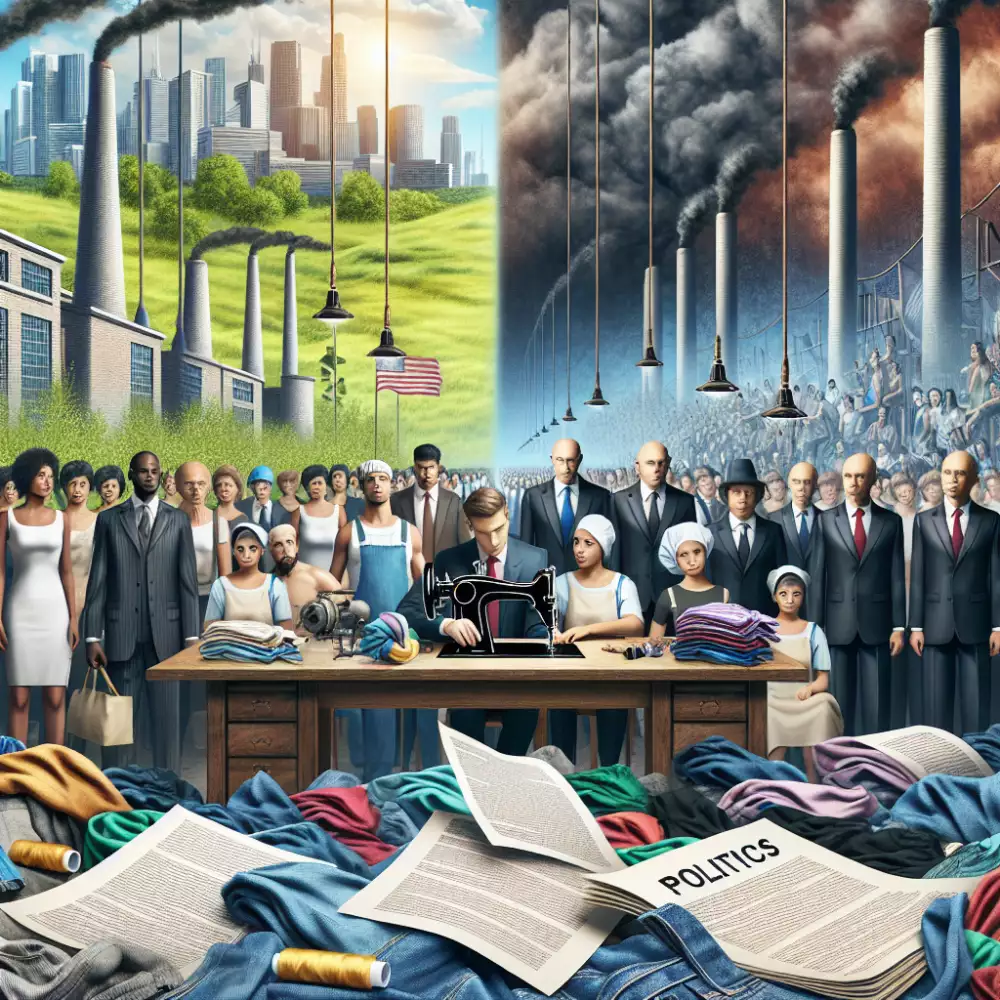
Consumers are demanding greater transparency and accountability from brands. This demand is driving a shift towards more ethical sourcing, production, and business models. This shift includes embracing circular fashion principles, promoting recycling and reducing textile waste.
The future of ethical fashion hinges on collaboration. Governments, businesses, consumers, and NGOs must work together to create a more equitable and sustainable industry. This collaboration involves enacting and enforcing stricter regulations, promoting transparency, and supporting businesses transitioning to ethical practices. Consumers play a crucial role in driving demand for ethically produced garments. By making informed choices, they can support brands prioritizing people and the planet. The future of fashion is not just about aesthetics but also about ethics. It is about creating an industry that values people, respects the environment, and promotes a more just and sustainable world.
Publikováno: 06. 07. 2024
Kategorie: Fashion


